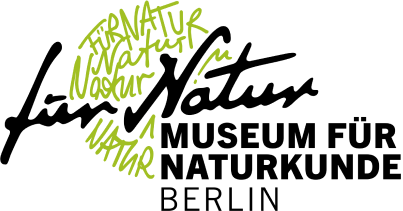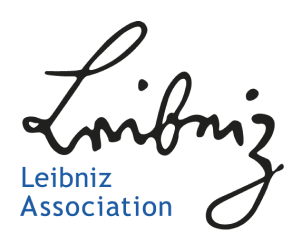About the website
Animals as Objects? is published by the research project Animals as Objects. Zoological Gardens and Natural History Museum in Berlin, 1810 to 2020 and edited by Ina Heumann and Tahani Nadim. This website features research results in German and English on selected objects, histories, and animals. It presents multivocal answers to the question of how animals have been turned into natural history objects and data.
Relational databases, the very databases that are often used to catalogue and manage natural history collections, inspired the conceptual and visual design of the website. Therefore, the website contains three different types of articles that are interconnected in diverse and sometimes surprising ways:
- Materials focus on specific photos, objects, documents, events, etc.
- Stories answer big and small research questions through materials and other sources.
- Themes address the bigger picture that links different stories and materials.
All technical components are open source. We worked collaboratively on Dendron, synchronised via git, and published directly from git through a self-hosted version of the content management system Netlify.
We have made every effort to research and clear all image rights. If we have missed something, please contact us.
Contact: humanities(at)mfn.berlin
About the project
The research project Animals as Objects. Zoological Gardens and Natural History Museum in Berlin, 1810 to 2020 was funded by the German Federal Ministry of Education and Research (BMBF). The joint project of the Museum für Naturkunde Berlin, the Humboldt-Universität zu Berlin and the Zoologischer Garten Berlin AG ran from September 2018 until December 2021.
About the people
Project members
Jenske Bal studied cultural anthropology and science and technology studies and carries out qualitative research in these fields. She is interested in the relationship between nature and culture, especially the relationship between humans and animals. Jenske is currently a PhD student in the ERC-funded project “The Body Societal: Unfolding Genomics Infrastructure in Cattle Livestock Selection and Reproduction” at the University of Liège in Belgium. In 2019, she completed an internship in the project “Animals as Objects” to investigate zoo animal breeding practices in Berlin as part of her Master’s degree. Jenske also participated in a research project on regional and national COVID-19 healthcare in the Netherlands (2020-2021).
Gloria Bauer holds a Bachelor’s degree in the History of Art and Visual History and German Literature from the Humboldt-Universität zu Berlin. She is currently completing her Master’s degree in the History of Art and Visual History. In 2017 Gloria completed an internship at the Historical Image and Document Collections of the Museum für Naturkunde Berlin. She worked as a student assistant in the project “Animals as Objects” from 2019 to 2020. Even before this work, Gloria had a great interest in taxidermy and its presentation in permanent collections. After her bachelor thesis on the taxidermist Hermann H. ter Meer, Gloria’s research interests shifted from taxidermied still life to moving images in the form of Italo-Westerns.
Filippo Bertoni obtained his PhD at Amsterdam University, focusing on earthworms and their scientists. He is a researcher at the Museum für Naturkunde Berlin, where he investigates the transformation of animals into objects and data across the city’s natural history collections and zoological gardens. Embracing an undisciplined approach, the stories he gathers play with genres, styles, and media at the edges of imaginative fiction and various forms of academic writing. Animating the tension between reality, science, and (science)fiction, these stories resist the universalizing push of Western modernity, opening up to the multiplicity of worlds already around us.
Ina Heumann heads the project “Animals as Objects” together with Tahani Nadim. She built up and co-heads the interdisciplinary department Humanities of Nature at the Museum für Naturkunde Berlin. She is a historian of science and obtained her PhD at the University of Vienna with a thesis on the transatlantic history of popular science. At the Museum für Naturkunde Berlin, her work has focused on the politics of nature, natural history and colonialism, contemporary history of the museum, and the translocation and appropriation of natural history collection objects.
Therese Kienemund obtained a Master’s degree in the history of science from the Technische Universität Berlin after a Bachelor’s degree and a Teaching Science Fellowship in Biology at Dartmouth College/USA. Therese has researched the exhibition history of insect models in the Museum für Naturkunde Berlin, and justice-oriented approaches for community participation in academic research. Further research interests include the gendered and racialised histories of midwifery. As web editor for “Animals as Objects”, Therese focused on copy-editing, content management, and open communication with all collaborators.
Britta Lange studied art history and cultural studies. In 2005, she received her doctorate from the Humboldt-Universität zu Berlin with a thesis on clichés of others in the life-size ethnographic models made by the company Umlauff (1868-1925). As a postdoctoral researcher she investigated the anthropological studies carried out on prisoners of war in Austria and the German Empire during the First World War, especially the sound recordings. She continued this research as part of her own DFG position in the Department of Cultural History and Theory at the Humboldt-Universität zu Berlin. In 2012, she completed her habilitation and was awarded the venia legendi for cultural studies. Since 2014 she has been working as a research fellow at Humboldt-Universität zu Berlin. Her research interests include the cultural history and cultural theories of the 18th to 21st centuries, concepts of material culture, collecting, and exhibiting; the history of the knowledge of early photographic, film, and sound documents; cultural techniques; and colonial and postcolonial constellations.
Clemens Maier-Wolthausen studied history in Berlin und Bergen/Norway with a focus on European history and Holocaust studies. Between 2003 and 2007, he worked on his thesis on the memory of the Second World War in Scandinavia at the European University Institute in Florence/Italy. Afterwards, Clemens researched the flight of German Jews to Sweden between 1933 and 1945, and curated a series of exhibitions on German-Jewish history and the history of the Second World War. Since 2015, he has worked with the Zoological Garden Berlin on the history of zoos, and is now also a participant of the joint BMBF-project “Animals as Objects”.
Tahani Nadim heads the project “Animals as Objects” together with Ina Heumann and also co-heads the department Humanities of Nature at the Museum für Naturkunde Berlin. She is a junior professor for socio-cultural anthropology at the Institute for European Ethnology at Humboldt University Berlin, where she is also a member of the Centre for Anthropological Research on Museums and Heritage (CARMAH). Her research focuses on data politics, the datafication of nature and the political and social contexts and consequences of collection digitisation.
Sebastian Riedel is completing his Master’s degree in Science Studies at the Humboldt-Universität zu Berlin after completing a Bachelor’s degree in Mathematics. Between November 2020 and February 2021, he completed an internship in the project “Animals as Objects” where he was particularly interested in reproduction and data practices in zoological gardens.
Theresa Schatt studied Cultural Studies and Art and Visual History in her Bachelor's degree, and is currently completing her Masters in cultural studies at Humboldt-Universität zu Berlin. She has been a student assistant in the project “Animals as Objects” since 2019. In the context of her work for the project, her research interest lies especially with the cataloguing systems of the zoological teaching collection.
Sarina Schirmer has been a student assistant with the project “Animals as Objects” since January 2021. In addition to her bachelor’s degree in history and political science, she has worked with the interdisciplinary research network Topoi and at the Institute of Contemporary History. She is currently completing her Master’s degree in history at the Free University of Berlin. Her interests lie in the fields of global and environmental history, as well as the history of knowledge production.
Mareike Vennen is a cultural studies scholar, currently working as a postdoc at the Humboldt-Universität zu Berlin. She gained her PhD at Bauhaus University of Weimar with a dissertation that explores the early history of the aquarium in 19th century Britain and Germany by following human and non-human actors – amateur scientists, water snails and aquarium pumps, sodden correspondences and mud. She has worked as a postdoctoral fellow at the Technische Universität Berlin in the research project “Dinosaurs in Berlin” where she examined the histories of colonial expeditions. In addition to her interest in developing new experimental formats in science communication and knowledge transfer, her research interests range from museum studies to the history of natural history and collection ecologies in 19th and 20th century. Her work focuses on the material culture, practices and logistics of and in natural history and the politics, ecologies and visual cultures of collecting and exhibiting. She wants to explore the circulation of objects, knowledge and practices and their entanglements with infrastructural, governmental and environmental issues.
Contributors
Anne Hoffmann studies European Literatures at the Humboldt-Universität zu Berlin.
Sophie-Marie Kaatsch studies Cultural History and Theory at the Humboldt-Universität zu Berlin.
Eileen Klingner studies Cultural History and Theory at the Humboldt-Universität zu Berlin.
Catarina Madruga completed her PhD “Taxonomy and Empire: Zoogeographical Research on the Portuguese Empire, 1862-1881” in the History and Philosophy of Science at the University of Lisbon. She is currently working as a postdoctoral researcher on her project “Colonial Provenances of Nature: The Expansion of the Mammal Collection Around 1900” at the Museum für Naturkunde Berlin. Her work focuses on the interconnections between the production of biogeographical knowledge, environmental history, the history of collections and the appropriation of colonial territories.
Marie Permantier studies Cultural History and Theory at the Humboldt-Universität zu Berlin.
Translation and copy-editing
Lydia White is a Wellington-based literary studies scholar, German-English translator, editor, and publishing consultant. She is the winner of the Deutscher Börsenverein’s 2021 Geisteswissenschaften International Nonfiction Translation Prize.
Jan-Peter Herrmann is a freelance translator and copy-editor based in Berlin.
Carla Welch is a freelance translator and copy-editor based in Regensburg.
Design and development
Trust supports a network of artists, designers, technologists, ecologists and thinkers who combine the discursive and the practical. Trust welcomes different forms of participation and shares the knowledge created in many ways: through memberships, public events, a residency programme, live-stream discussions, working groups and research reports, etc.
Trust worked with Son La Pham and Claire Tolan for this project.
Son La Pham lives in Berlin and works as a graphic designer focusing on new forms for technologies and the web. His digital work has been published in It’s Nice That, Hoverstat, Loadmo and Fonts In Use.
Claire Tolan is an artist and programmer based in Berlin, who focuses exploring human-computer interaction, online communities (intimacy, privacy), and information structures and theory.
Rasmus Emanuel Svensson is a graphic designer based in Berlin and Amsterdam where he founded (with Hanna Nilsson) PWR studio and publishing house.
Web editors
Acknowledgements
We would like to thank all who supported our work on this publication.
At Museum für Naturkunde Berlin
Technical and administrative support: Saskia Cyron, Erika Dalpiaz, Frauke Dornberg, Falko Glöckler, Sonja Kreft, Stefan Malinowski, Stefanie Paß, Mareike Petersen, Inna Reise, Holger Schick, Astrid Schröder, Caitlin Thorn, Markus Wegner
Research support in the Historical Image and Document Collections: Sandra Miehlbradt, Yvonne Reimers
Research support in the collections: Oliver Coleman, Ferdinand Damaschun, Jason Dunlop, Pascal Eckhoff, Sylke Frahnert, Christiane Funk, David Lazarus, Frieder Mayer, Johan Renaudie, Thomas von Rintelen, Christin Scheinpflug, Katrin Spitzer, Frank Tillack, Christine Zorn
At Zoologischer Garten Berlin
Zoological and historical advice: Heiner Klös, Ragnar Kühne, Andreas Ochs
At Humboldt-Universität zu Berlin
Research support in the Zoological Teaching Collection: Ines Drescher, John Nyakatura, Gerhard Scholtz



